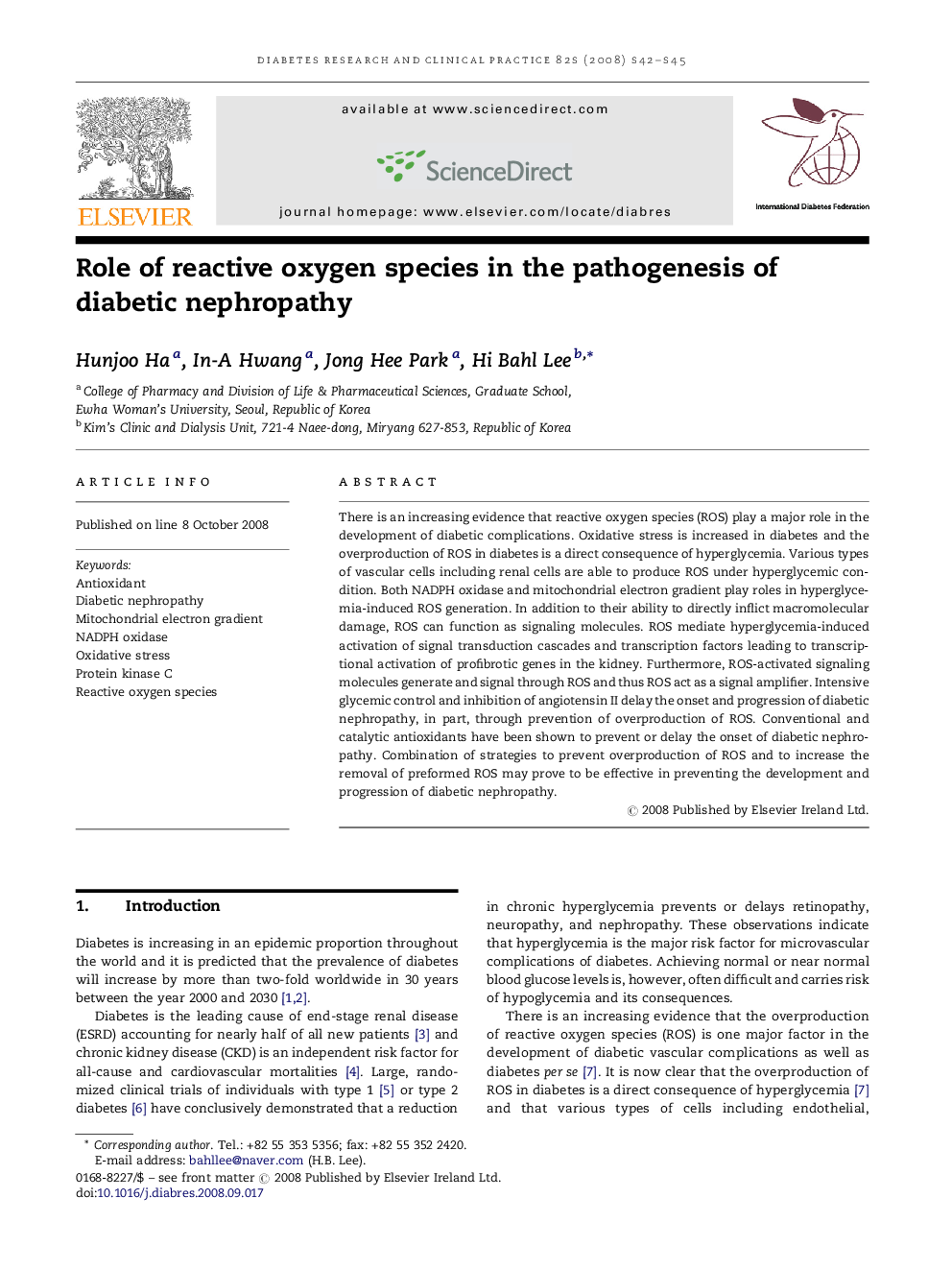| کد مقاله | کد نشریه | سال انتشار | مقاله انگلیسی | نسخه تمام متن |
|---|---|---|---|---|
| 2797988 | 1155673 | 2008 | 4 صفحه PDF | دانلود رایگان |

There is an increasing evidence that reactive oxygen species (ROS) play a major role in the development of diabetic complications. Oxidative stress is increased in diabetes and the overproduction of ROS in diabetes is a direct consequence of hyperglycemia. Various types of vascular cells including renal cells are able to produce ROS under hyperglycemic condition. Both NADPH oxidase and mitochondrial electron gradient play roles in hyperglycemia-induced ROS generation. In addition to their ability to directly inflict macromolecular damage, ROS can function as signaling molecules. ROS mediate hyperglycemia-induced activation of signal transduction cascades and transcription factors leading to transcriptional activation of profibrotic genes in the kidney. Furthermore, ROS-activated signaling molecules generate and signal through ROS and thus ROS act as a signal amplifier. Intensive glycemic control and inhibition of angiotensin II delay the onset and progression of diabetic nephropathy, in part, through prevention of overproduction of ROS. Conventional and catalytic antioxidants have been shown to prevent or delay the onset of diabetic nephropathy. Combination of strategies to prevent overproduction of ROS and to increase the removal of preformed ROS may prove to be effective in preventing the development and progression of diabetic nephropathy.
Journal: Diabetes Research and Clinical Practice - Volume 82, Supplement 1, 13 November 2008, Pages S42–S45